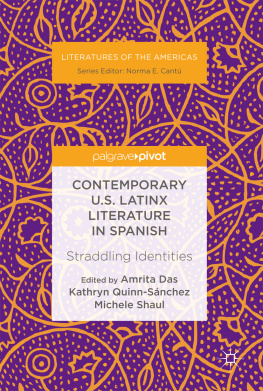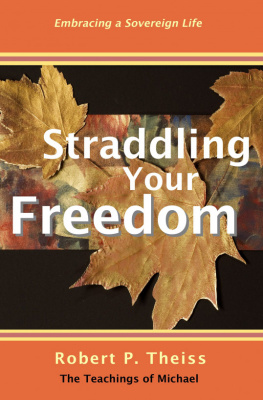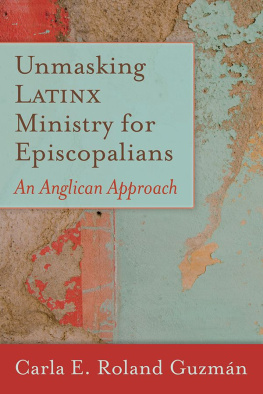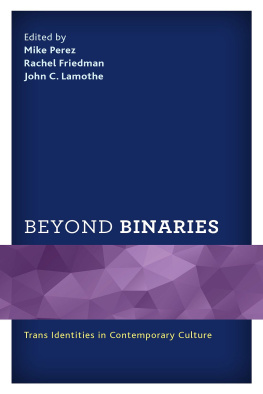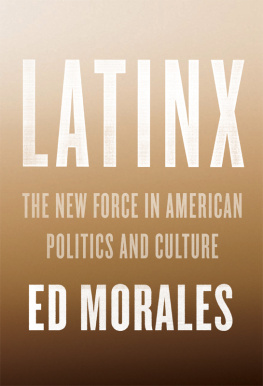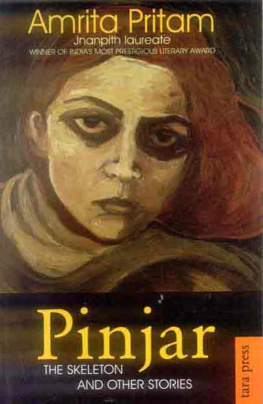Amrita Das - Contemporary U.S. Latinx Literature in Spanish: Straddling Identities
Here you can read online Amrita Das - Contemporary U.S. Latinx Literature in Spanish: Straddling Identities full text of the book (entire story) in english for free. Download pdf and epub, get meaning, cover and reviews about this ebook. year: 2018, publisher: Springer International Publishing, genre: Politics. Description of the work, (preface) as well as reviews are available. Best literature library LitArk.com created for fans of good reading and offers a wide selection of genres:
Romance novel
Science fiction
Adventure
Detective
Science
History
Home and family
Prose
Art
Politics
Computer
Non-fiction
Religion
Business
Children
Humor
Choose a favorite category and find really read worthwhile books. Enjoy immersion in the world of imagination, feel the emotions of the characters or learn something new for yourself, make an fascinating discovery.
- Book:Contemporary U.S. Latinx Literature in Spanish: Straddling Identities
- Author:
- Publisher:Springer International Publishing
- Genre:
- Year:2018
- Rating:5 / 5
- Favourites:Add to favourites
- Your mark:
- 100
- 1
- 2
- 3
- 4
- 5
Contemporary U.S. Latinx Literature in Spanish: Straddling Identities: summary, description and annotation
We offer to read an annotation, description, summary or preface (depends on what the author of the book "Contemporary U.S. Latinx Literature in Spanish: Straddling Identities" wrote himself). If you haven't found the necessary information about the book — write in the comments, we will try to find it.
Amrita Das: author's other books
Who wrote Contemporary U.S. Latinx Literature in Spanish: Straddling Identities? Find out the surname, the name of the author of the book and a list of all author's works by series.
Contemporary U.S. Latinx Literature in Spanish: Straddling Identities — read online for free the complete book (whole text) full work
Below is the text of the book, divided by pages. System saving the place of the last page read, allows you to conveniently read the book "Contemporary U.S. Latinx Literature in Spanish: Straddling Identities" online for free, without having to search again every time where you left off. Put a bookmark, and you can go to the page where you finished reading at any time.
Font size:
Interval:
Bookmark:
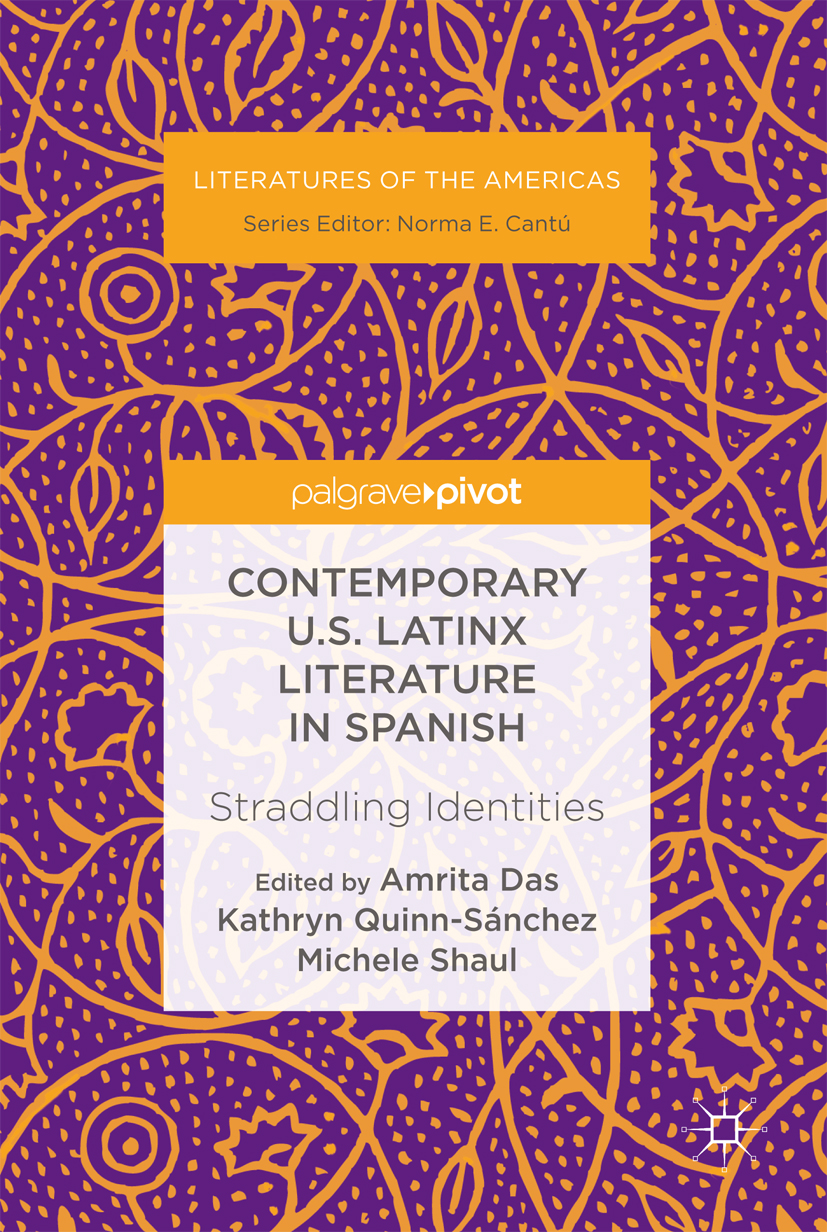
This series seeks to bring forth contemporary critical interventions within a hemispheric perspective, with an emphasis on perspectives from Latin America. Books in the series highlight work that explores concerns in literature in different cultural contexts across historical and geographical boundaries and also include work on the specific Latina/o realities in the United States. Designed to explore key questions confronting contemporary issues of literary and cultural import, Literatures of the Americas is rooted in traditional approaches to literary criticism but seeks to include cutting-edge scholarship using theories from postcolonial, critical race, and ecofeminist approaches.
More information about this series at http://www.palgrave.com/gp/series/14819

Cover illustration: Pattern adapted from an Indian cotton print produced in the 19th century
This Palgrave Pivot imprint is published by the registered company Springer Nature Switzerland AG
The registered company address is: Gewerbestrasse 11, 6330 Cham, Switzerland
is an Assistant Professor of Chicano/Latino Studies in the School of Gender, Race, and Nations at Portland State University. Her research topics include U.S. Latino/Chicano Studies, Spanish as a heritage language, Chicana feminisms, visual expression, and literature. She explores practices of interpretation in relation to notions of U.S. Latino/Chicano heritage as an area of critical studies. She is working on a book project that traces the emergence of Chicana literary and visual cultural expression alongside critical works to examine how language use fostered the arts and criticism of Chicana feminists.
is a Senior Lecturer in Spanish in the School of Humanities at Massey University. Her research explores the interrelation between cultural values and individual emotions as it is represented in literary fiction. She has several international publications on shame and humor in contemporary Latin American/Caribbean fiction and is currently working on a project on Argentinian humorist Roberto Fontanarrosa and another on orality, humor, and queerness in Latin American fiction.
is Associate Professor of Spanish at University of North Carolina Wilmington. She teaches U.S. Latinx literature and culture in the Spanish program, and her research focuses on the connections between Latin America and the United States. Some of her recent publications include the The Imagined World of Latin/o America in Sam no es mi to in (Re)mapping the Latina/o Literary Landscape: New Works and New Directions . Eds. Cristina Herrera and Larissa Mercado-Lpez (Palgrave Macmillan, 2016), Daniel Alarcns Lima: Articulation of Transnationalism through a Discursive and Geographical Space in Negotiating Latinidades, Understanding Identities Within Space . Ed. Kathryn Quinn-Snchez (Cambridge Scholars Publishing, 2015), and Environmental Crisis and the Male Culture in Marie Aranas Cellophane in Hispanic Women Writers in the 21st Century: Shaping Gender, the Environment, and Global Politics . Eds. Estrella Cibreiro and Francisca Lopez (Routledge, 2013).
is Professor of Humanities at the Tecnolgico de Monterrey. She is a member of the advisory board of the Recovering the U.S. Hispanic Literary Heritage Project and a member of the National System of Researchers of Mexico, Leve. She is also a member of the Research Center, Communication, and Cultural Studies where her research centers on literature and discourse, Latina/o print culture, and U.S.Mexico border literature. Some of her recent publications include: La pluralidad de dilogos en La Frontera de Cristal, de Carlos Fuentes ( SIGNA: Revista de la Asociacin Espaola de Semitica , 2016); The Periodical in Times of Revolution: La Prensa , as a Cultural Force in Relation to a Community of Readers in Print Culture Through the Ages: Essays on Latin American Book History. Eds. Blanca Lpez de Mariscal, Donna M. Kabalen de Bichara and Paloma Vargas (Cambridge Scholars Publishing, 2016). The Construction of Latina/o Literary Imaginaries: Essays on Alternative Worldviews (Cambridge Scholars Publishing, 2018); Expressions of Dissent in the Writings of Adela Sloss Vento in Recovering the U.S. Hispanic Literary Heritage Volume IX , Eds. Donna M. Kabalen de Bichara and Blanca Lpez de Mariscal (Arte Pblico Press, 2014); Telling Border Life Stories: Four Mexican American Women Writers , (Texas A&M University Press, 2013).
is Assistant Professor of Spanish at University of Denver. His teaching and research interests are Border Studies and Immigration, Mexican Studies, Latin American Cultural Studies, Subaltern Studies among others. His work aims at raising awareness about issues related to race, migrations, class, and cultural exchanges taking place in the borderlands.
Font size:
Interval:
Bookmark:
Similar books «Contemporary U.S. Latinx Literature in Spanish: Straddling Identities»
Look at similar books to Contemporary U.S. Latinx Literature in Spanish: Straddling Identities. We have selected literature similar in name and meaning in the hope of providing readers with more options to find new, interesting, not yet read works.
Discussion, reviews of the book Contemporary U.S. Latinx Literature in Spanish: Straddling Identities and just readers' own opinions. Leave your comments, write what you think about the work, its meaning or the main characters. Specify what exactly you liked and what you didn't like, and why you think so.

